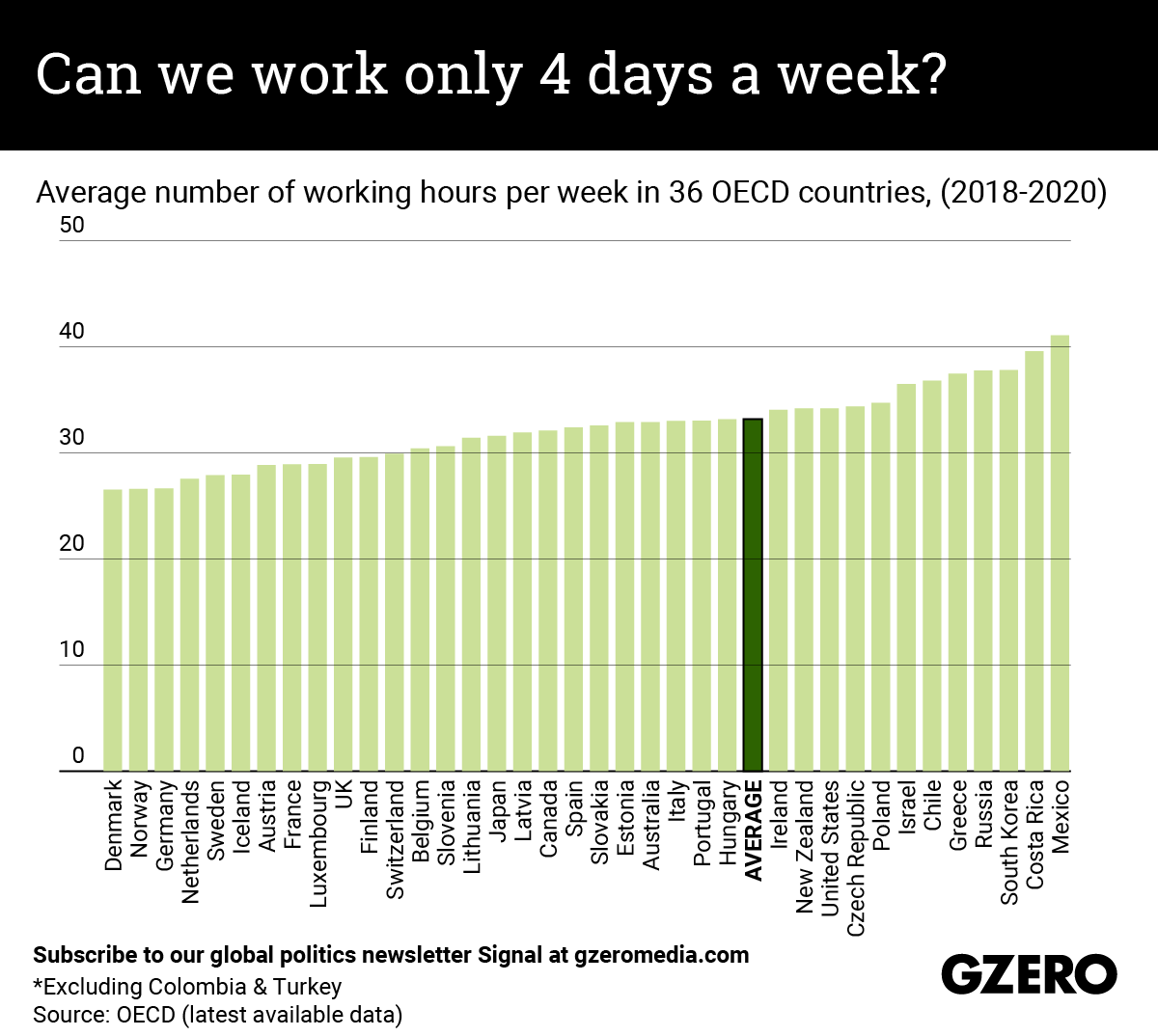March 16, 2021
This fall Spain plans to launch what will be the world's first national pilot program for a four-day workweek. The idea has gained popularity in recent years to encourage productivity, boost workers' mental health, and fight climate change (less commuting means less pollution). The pandemic, particularly with its stresses on mental well-being, has added urgency to the proposal. That's why other countries — especially those with strong labor protections and short workdays — are paying close attention to the experiment, under which the Spanish government will subsidize part of a company's cost to transition its employees to a four-day workweek. Here's a look at how long workers are generally on the job in other OECD countries (without accounting for paid leave in any of them).
More For You
- YouTube
China was largely absent from the core conversations at the 2026 Munich Security Conference. That, says Ian Bremmer, is telling.
Most Popular
- YouTube
At the 2026 Munich Security Conference, Brad Smith announces the launch of the Trusted Tech Alliance, a coalition of global technology leaders, including Microsoft, committing to secure cross-border tech flows, ethical governance, and stronger data protections.
When the US shift from defending the postwar rules-based order to challenging it, what kind of global system emerges? CFR President Michael Froman joins Ian Bremmer on the GZERO World Podcast to discuss the global order under Trump's second term.
TODAY at 12 pm ET: Watch our Global Stage live premiere from the Munich Security Conference
Feb 13, 2026
Tune in today at 12pm ET/6pm CET for the live premiere of our Global Stage from the 2026 Munich Security Conference, where our panel of experts takes aim at the latest global security challenges. NY Times National Security Correspondent David Sanger moderates the discussion with Benedetta Berti, Secretary General, NATO Parliamentary Assembly; Ian Bremmer, President & Co-founder, Eurasia Group & GZERO Media; Dr. Wolfgang Dierker, Global Head of Government Affairs, SAP; and Brad Smith, Vice Chair & President, Microsoft.
© 2025 GZERO Media. All Rights Reserved | A Eurasia Group media company.
